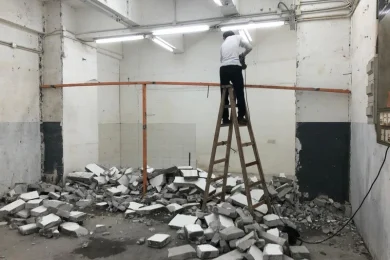
When it comes to demolition services, navigating permits and regulations is a critical step. Demolition projects, whether residential or commercial, require adherence to legal requirements to ensure safety, Demolition Services (清拆服務), and liability coverage. A misstep in this process can lead to delays, penalties, or even legal action. Understanding how to get these permits and comply with regulations is crucial for a smooth project.
Why Permits and Regulations Matter
Permits and regulations for demolition are designed to ensure the safety of workers, the public, and the surrounding environment. According to recent studies, nearly 40% of construction-related accidents occur on demolition sites due to insufficient planning or disregard for safety regulations. Ensuring compliance helps mitigate these risks while also addressing environmental concerns like waste disposal and hazardous material handling.
Institutions such as local municipalities enforce these rules to ensure that demolitions align with urban planning laws and environmental standards. Ignoring these requirements can result in hefty fines. For example, improper demolition processes or lack of permits have led to penalties exceeding $10,000 per violation, according to government data.
Common Types of Permits for Demolition
The permits required for a demolition project vary by location and scope of work. Common permits include:
Demolition Permits: These provide official permission to conduct demolition activities and often include specific conditions for execution.
Environmental Permits: These are required when dealing with hazardous materials such as asbestos, which is present in 23% of older buildings undergoing demolition.
Utility Disconnection Permits: These permits ensure that water, electricity, and gas services are safely disconnected before starting work.
Historical Preservation Clearance: Some buildings have historical significance. Regulations may require additional approvals to proceed with demolishing these structures.
Understanding these permits is essential to avoid legal complications.
Steps to Navigate Permits and Regulations
Research Local Requirements
Rules and permit types can vary widely depending on your location. Begin by consulting your local government or city planning office. Some areas have fast-tracked permits online, while others require in-person applications.
File Necessary Applications Early
Applying for permits can take weeks or even months. Housing statistics show that delays in obtaining permits push project schedules by an average of 25%.
Hire Licensed Professionals
Working with experienced demolition contractors leverages their knowledge of permits and compliance. They can help streamline timelines and avoid legal surprises.
Conduct a Site Inspection
Before applying for permits, ensure a thorough site inspection to identify hazardous materials, such as lead paint or mold, that require special handling.
Stay One Step Ahead
Managing permits and sticking to regulations may seem tedious, but this upfront effort can save immense trouble down the line. Proper compliance ensures that projects run smoothly and that you’re protected legally and financially. Whether you’re overseeing a small residential demolition or a large commercial project, understanding how to stay on top of permits and regulations is a must.